Otabekov Otajon
Full-time PhD student (2022-2024)ootabekov@wiut.uz
Education / Academic qualification:
- 2015-2020 Bachelor of science in “Economics with Finance” with first degree diploma
- 2020-2021 Master of science in “Applied economics” with distinction
Employment:
- 2021-2022 Leading specialist in taxation in Institute for fiscal studies under Ministry of Finance of the Republic of Uzbekistan
- Starting from 2022 – associate lecturer in SOBE (School of business and economics)
Expertise:
- Public economics. Public finance. Taxation theory. Data analytics.
Doctoral Project:
Currently in our globalized world and modernized societies, economic development is becoming one of the main goals of economic policymakers in order to provide nations with highest possible level of prosperity and improved living standards. Public economics as being one of the important parts of the economy, in recent years, has, to some extent, an impact on economic development. Specifically, core part of the public economics, taxation, have been influencing growth path of the economy since the first initiation of it. With respect to this, in the first chapter of the dissertation, we mainly concentrate on analyzing efficiency of tax system of Uzbekistan and try to identify growth-maximizing level of tax burden. Specifically, in the same line with monetary policy, fiscal policy also play an important role in the process of economic transition and development. Despite the fact that there have been fiscal reforms in Uzbekistan since 2017, there still remain certain drawbacks of updated tax system and new tax code of the Republic of Uzbekistan. One of the main indicators of the fiscal health in any country is tax burden (percentage share of tax revenue in GDP). According to the theoretical literature, there exists particular level of tax revenue (hence tax burden), which until that point increase of tax burden positively impacts economic growth and further rise in tax revenue decreases economic growth. To be more precise, at this optimal rate of tax burden economic growth will be maximized. In this study, we are going to utilize log-linearized model of Scully’s tax optimization along with simple OLS model. Besides, threshold analyses also will be employed in order to accomplish robustness check of the result. According to the preliminary results, optimal level of tax burden in Uzbekistan for the period from 2000 to 2019 varies approximately from 19 percent to 22.5 percent based on results of different models utilized.
Besides, the second chapter of the dissertation tries to contribute to the optimal tax theory literature by trying to establish a mathematical model that can calculate optimal level of different types of tax rates, such as personal income tax and value added tax, which further increase economic growth. An undisputable fact that needs to be included here is that the mathematical model constructed mainly based on golden rule of saving of basic Solow model of economic growth along with basic consumption/saving theory of macroeconomics. Appropriateness and applicability of the mathematical model also will be tested considering the case of Uzbekistan. According to the preliminary results, average tax rate for the period from 2010 to 2019 needed to be 12 percent for both personal income tax and value added tax, while actual tax rates were 15 percent for value added tax and 12 percent for personal income tax.
Finally, application prospects of possible instruments to optimize tax burden in the case of Uzbekistan will be discussed in the final chapter of the dissertation. Particularly, several fiscal policies such as tax holidays, tax deductions, subsidies are efficient in the short-run, while other fiscal reforms like tax shifts, redefinition of elements of tax bases and resetting different types of tax rates are more helpful in the long-run in the process of tax burden optimization.
Publications:
-
Islombek Niyazmetov, Otabekov O., 2022. ЎЗБЕКИСТОНДА СЎНГГИ ЙИЛЛАРДАГИ ФИСКАЛ ЎЗГАРИШЛАР: ЮТУҚЛАР ВА КАМЧИЛИКЛАР. СОЛИҚ ВА ҲАЁТ, Ўзбекистон Республикаси Давлат солиқ қўмитаси ҳузуридаги Фискал институт, pp. 15-28.
-
Niyazmetov I., Otabekov O. Rakhmonov. A., 2023. Economic growth and optimal tax burden: A case of Uzbekistan's economy. Journal of tax reform, 1(9), pp. 47-63.
-
Niyazmetov, I. & Otabekov, O., 2021. ОПТИМАЛ СОЛИҚ ЮКИ ВА ИҚТИСОДИЙ ЎСИШ. Рақамли иқтисодиёт шароитида солиқ маъмуриятчилиги ва халқаро солиққа тортиш механизмини такомиллаштириш, Volume 2.
-
Otabekov, O., 2021. A contribution to optimal taxation theory. Экономика и социум, 4(83).
-
Otabekov, O., 2021. Солиқ тушумларини прогноз қилиш усуллари. Замонавий таълим тизимини ривожлантириш ва унга қаратилган креатив ғоялар, таклифлар ва ечимлар: Республика илмий-амалий конференция материаллари., Volume 12, pp. 130-132.
-
Otabekov, O., 2021. Эълон қилинган солиқ ўзгаришларидан кутилаётган бюджет йўқотишлари қоплаш усуллари. Замонавий дунёда инноватцион тадқиқотлар: назария ва амалиёт Республика илмий-амалий конференцияси материаллари., Volume 24, pp. 13-20.
-
Otabekov, O. & Voronin, S., 2021. Влияние возрастной зависимости на економический рост: на примере Узбекистана. Бозор, пул ва кредит, Volume 9, pp. 36-47.
-
Pulatov, D., Voronin, S. & Otabekov, O., 2022. Impact Of Trade Policy Liberalization On Chemical Industry: Case Study Of Uzbekistan. IFRS: GLOBAL RULES & LOCAL USE - BEYONDTHE NUMBERS, Volume 10.





